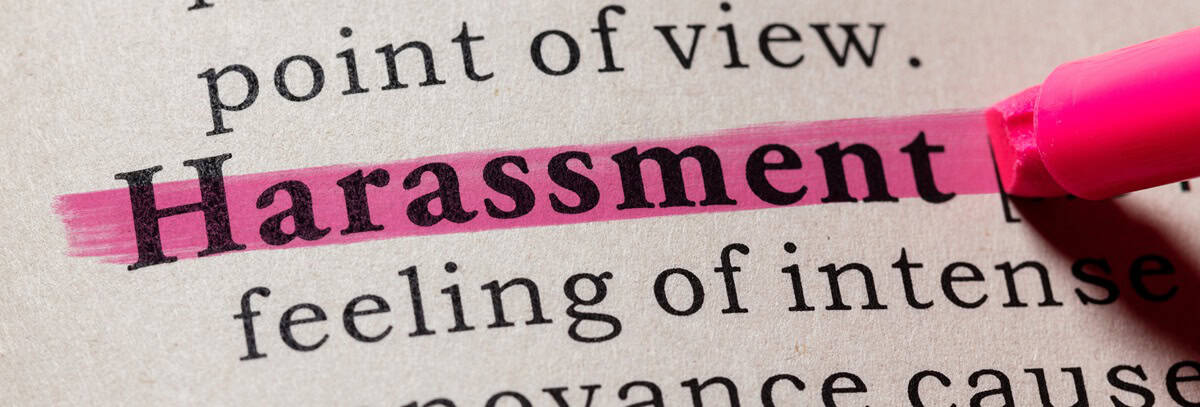What Factors Impact a DUI Test in Arizona?
Getting pulled over for suspected DUI in Arizona is stressful and potentially life-changing. One moment you’re driving home, and the next, you’re being asked to step out of your car and submit to a DUI test. Many drivers don’t realize that a number of external factors can influence the results of field sobriety tests, breathalyzer readings, and blood alcohol concentration (BAC) levels — and not all of them are related to how much you’ve had to drink.
Your Rights If You’re Arrested for Resisting Arrest?
In this article, you will learn what resisting arrest means under Arizona law, what penalties you might face, and what you should do if you’ve been accused of resisting. We’ll also explain some common defense strategies that could help reduce or dismiss the charges altogether.
Understanding BAC (Blood Alcohol Concentration) and Alcohol Metabolism
Learn what Blood Alcohol Concentration really means, how breath, blood, and urine tests measure it, and why factors like body weight, sex, food, and drink strength make everyone’s BAC different. This quick guide clarifies Arizona’s 0.08% limit and explains why even “just one drink” can still impair you.
Arizona’s Legal BAC Limits Explained
Arizona has some of the strictest DUI laws in the country. It’s important to know the legal limits and how DUI is defined under Arizona law, especially ARS §28-1381, which is the primary DUI statute. Under Arizona law, you can be charged with DUI in several ways
Unconscious from a Car Accident While Under the Influence
Being involved in a car accident while under the influence is a serious matter, and losing consciousness during the incident adds another layer of complexity. If you or a loved one has been involved in an accident and became knocked unconscious, you may face a range of significant legal challenges. Understanding the legal landscape and your rights is essential to handling the situation effectively.
Can I Get Charged with Driving Under the Influence of Cough Syrup in Arizona?
Many people don’t realize that a DUI in Arizona doesn’t just involve alcohol or illegal drugs. If you’re pulled over after taking over-the-counter or prescription cold medicine like NyQuil, ZzzQuil, or codeine-based cough syrups, you could still face DUI charges. Even legally purchased or prescribed medication can impair your driving ability enough to lead to an arrest.
Arrested for Defending Yourself During a Road Rage Incident?
In the heat of a road rage encounter, emotions escalate fast—and so can the legal consequences. What may start as a shouting match can quickly evolve into physical violence or threats involving a vehicle. If you reacted to defend yourself, it might come as a shock to find yourself arrested. But under Arizona law, even acts of self-defense can lead to assault or aggravated assault charges if law enforcement or prosecutors believe your actions went too far.
Can You Get a DUI for Driving After Smoking CBD in Arizona
For many Arizonans, CBD products are part of a daily wellness routine. From oils to edibles, cannabidiol (CBD) is marketed as a legal and non-intoxicating alternative to marijuana. But despite CBD being legal under both federal and Arizona law, there’s growing confusion about whether driving after using CBD could lead to a DUI. The concern arises because CBD products can contain trace amounts of THC, the psychoactive compound found in cannabis that can impair your driving ability and lead to a DUI charge.
Your Rights If Arrested for Assault After a Bar Fight
This article will explain the different types of assault charges under Arizona law, what rights you have during and after an arrest, what penalties you might be facing, and how Shah Law Firm can help you fight the charges. Whether you were defending yourself or simply in the wrong place at the wrong time, knowing your rights could make the difference between a conviction and a dismissed case.
What is Aggravated Harassment in Arizona and How is it Charged?
Being accused of aggravated harassment in Arizona is a serious matter that can lead to felony charges, especially if there is a prior conviction for domestic violence. If you’re facing allegations of violating a protective order or repeated acts of harassment, it’s critical to understand the legal implications and what you’re up against. Arizona law treats aggravated harassment differently from simple harassment, and the consequences can include years in prison.
Will a DUI Conviction Prevent You From Renting an Apartment in Arizona?
Facing a DUI conviction can be life-altering, and the consequences often extend beyond the courtroom. One area where this can have a serious impact is housing. If you’re asking yourself, “Will a DUI prevent me from renting an apartment in Arizona?”—you’re not alone. Landlords do consider criminal records, and a DUI can raise red flags, even if it seems unrelated to housing or tenancy.
Charges for Filing a False Police Report in Arizona
Filing a false report in Arizona is a criminal offense that can carry serious consequences. Under Arizona law, it is illegal to knowingly make a false statement or provide false information to law enforcement agencies, which includes the crime of false reporting. This includes creating a false police report about a crime that never happened or falsely accusing someone of a crime they didn’t commit. These charges are more common than many people realize and are often tied to disputes, misunderstandings, or efforts to gain an advantage in civil or family matters.
Can I Be Charged with a DUI for Prescription Anxiety Medication?
Driving under the influence (DUI) is most commonly associated with alcohol, but in Arizona, you can also face DUI charges for driving while impaired by prescription medications, including anxiety medication.
Can Police Search Your Cell Phone Without a Warrant in Arizona?
Cell phones hold a significant amount of private information, including text messages, emails, call logs, and location data. Because of this, law enforcement often seeks access to cell phone data during criminal investigations. However, the Fourth Amendment of the United States Constitution protects individuals from unreasonable searches and seizures, meaning police generally need a warrant to search a phone.
Impaired to the Slightest Degree: What It Means Under Arizona Law
Arizona has some of the strictest DUI laws in the country, including the state’s standard for impairment. One of the most confusing aspects for many Arizona drivers is the term “impaired to the slightest degree.” This standard allows law enforcement to arrest and prosecutors to charge you with a DUI even if your BAC, or blood alcohol concentration, is below the legal limit of 0.08. Understanding how this works is essential if you are facing DUI charges in Arizona for a DUI.
Impact of DUI on Security Clearance and Background Checks
If you’re facing a DUI arrest in Arizona, you may be wondering how it will affect your security clearance and background check results. Whether you work in government, the military, or in private industry for jobs that require clearances, even a single DUI conviction can raise concerns about your reliability, trustworthiness, and eligibility for a security clearance. Since security clearance holders undergo strict reviews, including assessments of their criminal record, financial history, and personal behavior, a DUI arrest can harm your career.
Impact of DUI and Substance Charges on Nursing Licenses
Substance-related violations — including being charged with a DUI — can jeopardize a medical career and may lead to the end of your nursing certification career. DUI charges remain among the most serious misdemeanor criminal charges affecting nurses. Arizona’s top five reasons for disciplinary action against nurses. For Arizona nurses, even a first-offense misdemeanor DUI charge or conviction can trigger a license investigation by the Arizona Board of Nursing. The board may treat any DUI charge as a possible sign of substance abuse, which could affect patient safety and the nurse’s ability to practice safely.
What Happens if You Refuse a Blood Test After a DUI in Arizona
Being arrested for DUI in Arizona can be overwhelming, especially when law enforcement asks you to submit to a breath or blood test. Many people wonder if they have the right to refuse a blood test after being stopped for suspected DUI. However, Arizona’s implied consent law requires drivers to consent to chemical tests like a blood test, breath test, or urine test after being arrested for DUI. Refusing to take a field sobriety test or blood test does not mean you avoid consequences; in fact, it may lead to more severe DUI penalties. In fact, a refusal can lead to immediate license suspension, mandatory blood draw with a warrant, and additional penalties that may impact your driving under the influence case. Understanding how test refusal works in Arizona and how it fits into your DUI defense strategy is critical if you want to protect your driving privileges.
Criminal Charges Rise During Spring Training in Arizona
Spring Training in Arizona is a highly anticipated event for Major League Baseball fans. People from across the country—and even outside the United States—travel to the Phoenix metropolitan area to watch their favorite teams prepare for the upcoming season. The combination of warm weather, relaxed vacation vibes, and an exciting sports atmosphere often leads to large crowds at games, restaurants, and bars. Unfortunately, these joyful gatherings sometimes come with a downside: an increase in certain criminal charges.
When fans gather for Spring Training, alcohol flows freely in and around the ballparks. The party-like environment can lead to impaired judgment, conflicts, and other risky behaviors that might not arise under normal circumstances.
Can You Get a DUI in a Wheelchair?
Operating a motorized wheelchair while impaired can result in legal issues similar to those faced by drivers of traditional vehicles under the influence that offers independence for individuals with disabilities.
Can You Get a DUI on a Golf Cart on Private Property in Arizona?
In Arizona, driving under the influence laws extend beyond traditional cars and trucks, and the question often arises: can you get a DUI while driving a golf cart on private property? The simple answer is yes. Arizona’s DUI statutes are broad, applying not just to public roadways but also to certain private areas that are accessible to the public, such as golf courses or gated communities.
Can I Get Arrested for Flying a Drone While Intoxicated?
Flying a drone while under the influence of alcohol or drugs is not just a poor decision but also one that could lead to significant legal trouble. Drone usage, both recreational and commercial, has surged in recent years, raising questions about how existing laws apply to drone pilots. In Arizona and across the United States, operating a drone irresponsibly, particularly while intoxicated, can have severe consequences. This article explores the legal framework, highlighting key statutes and offering practical advice for use of drones and its operators to stay on the right side of the law.
Arizona DUI Laws for ATV: Off-Roading Vehicle Under the Influence
Off-roading in Arizona is a thrilling adventure, with all-terrain vehicles (ATVs), quads, and side-by-side vehicles offering a unique way to explore the state’s rugged landscapes. However, the fun can quickly turn into a legal nightmare if alcohol or drugs are involved. Arizona’s DUI laws are some of the strictest in the nation and apply not just to cars and trucks but also to four-wheelers and other off-road vehicles, emphasizing the seriousness of operating a motor vehicle under the influence. Many drivers are unaware that these laws cover ATVs, leading to unexpected and often severe consequences for recreational vehicle DUIs.
Can You Get a DUI for Driving a Lawn Mower in Arizona?
Driving under the influence (DUI) is a severe offense in Arizona, often associated with traditional vehicles like cars and trucks. However, the question arises: can someone face a DUI conviction for operating a less conventional vehicle, such as a riding lawn mower? Arizona law takes a broad view of what constitutes a vehicle under DUI statutes, making exploring this topic essential. This article breaks down the legal views, potential consequences, and real-world cases that shed light on how to get charged with a DUI.





























